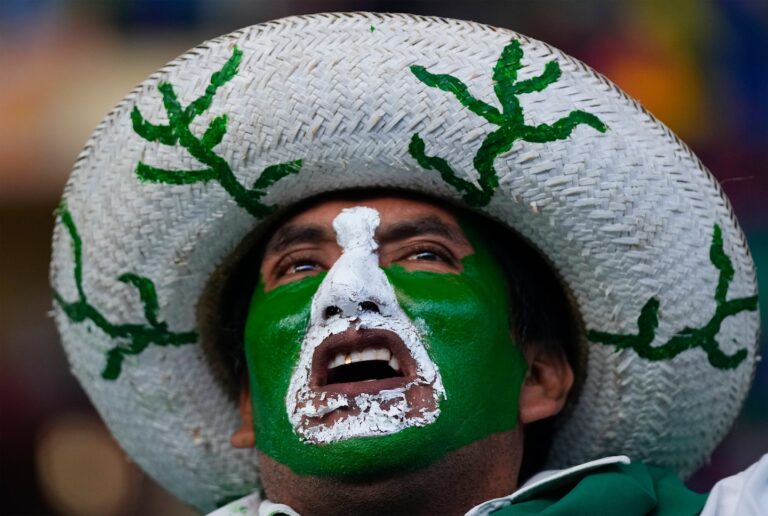Amid soaring prices, dollar shortages and long lines at petrol stations with no fuel, protests are intensifying in Bolivia over its rapid decline from one of the continent’s fastest growing economies two decades ago to one of its most crisis-hit.
“We can change this country because we are the engines of production,” Roberto Rios Ibáñez, secretary general of the Bolivian Traders’ Confederation, said as exhausted protesters took a lunch break in the center of the capital, gridlocked by traffic. “The government doesn’t listen, that’s why we are in the streets.”
Bolivia’s financial difficulties are due, at least in part, to unprecedented rifts at the highest levels of the ruling party.
President Luis Arce and his one-time ally, leftist icon and former president Evo Morales, are battling over the future of Bolivia’s splintering Movement for Socialism (MAS, by its Spanish acronym) ahead of 2025 elections.
Political fighting has paralyzed government efforts to address deepening economic despair, and analysts have warned that social unrest could erupt in the historically unstable country of 12 million people.
The rift within the ruling party began in 2019 when Morales, then Bolivia’s first indigenous president, ran for an unconstitutional third term. His victory in a disputed election plagued by allegations of fraud sparked mass protests that left 36 people dead and led to Morales resigning and fleeing the country.
Morales’ handpicked successor, Arce, won elections on a promise to restore prosperity to Bolivia, once Latin America’s main supplier of natural gas, after a transitional government seized power in what MAS called a coup.
Arce served as finance minister under Morales and oversaw years of strong growth and low inflation, but faced a tough economic situation caused by the coronavirus pandemic when he took office in 2020. Falling gas production brought an end to Bolivia’s budget-sapping economic model.
Mr. Morales, who remains hugely popular among Bolivia’s indigenous communities, coca growers and labor unionists, saw an opportunity. After returning from exile, the charismatic populist last year announced plans to run in the 2025 elections, putting him at odds with President Arce, who is expected to seek reelection.
“Bolivia has an indigenous majority, and people will instinctively support someone like Morales based on what he represents,” said Diego Font Bacano, an expert on Bolivian politics at Texas A&M University and a former informal adviser to President Arce. “Now they have a boost in the form of the failure of the Arce government.”
Earlier this month, Morales rallied tens of thousands of supporters in Cochabamba, southeast of La Paz, galvanizing his rural base.
“We won the election and we will save Bolivia,” the victorious President Morales roared to a stadium packed with cheering supporters waving “wiphala,” the brightly colored checkered flag representing Bolivia’s many ethnic groups.
Arce is challenging the legitimacy of Morales’ campaign, saying a 2023 Constitutional Court ruling bars him from running.
Legal experts say it’s not that clear-cut.
“We have seen politicians manipulate the court to decide political questions that have deep constitutional implications,” said Eduardo Rodriguez Bertse, a Bolivian judge who served as president from 2005 to 2006.
“We followed the rules,” Morales declared in his speech, and warned of mass unrest if he was disqualified from running.
Meanwhile, with a cash shortage leaving them unable to obtain dollars to pay overseas suppliers, Bolivian merchants are clamoring to buy US dollars at inflated prices in neighboring countries, creating bizarre scenes at the country’s borders with Brazil and Peru.
Last year, when money exchanges in La Paz dried up, Bolivians queued overnight outside the central bank to get foreign currency.
This contrasts sharply with Bolivia’s economic boom in the early 21st century, when, fueled by soaring export revenues, the Morales government slashed poverty to 15 percent, expanded the middle class and built vast cities and roads.
The problems began in 2014, when commodity prices plummeted and the government began dipping into its foreign-currency reserves to keep up with spending. It then began drawing down its gold reserves and selling dollar-denominated government bonds domestically.
“They’ve used up their savings and now they’re running out of money,” said Gonzalo Chavez, an economics professor at Bolivia’s Catholic University.
To quell public discontent, the government is spending $2 billion a year to import highly subsidized gasoline, further tightening the fiscal squeeze. Ratings agency Fitch downgraded Bolivia’s debt into junk bond territory in February, giving it a CCC rating.
And the fight over MAS is exacerbating the economic problems.
Morales’ allies in Bolivia’s Congress have consistently blocked Arce’s attempts to borrow money to ease the pressure. Bolivia is rich in lithium, but lawmakers won’t allow Arce to be mined by foreign companies.
President Arce claims the unrest is an “economic boycott” aimed at toppling his presidency.
Seeking to soothe investor fears, Montenegro’s Finance Minister Marcelo has denied any crisis, but long lines of frustrated motorists outside gas stations suggest otherwise. Angry truckers have been blocking roads and burning tyres in recent days.
“President Arce has abandoned the economy while dismantling our social fabric,” said Jorge Cucho, an indigenous leader and activist. “Prices have risen by 70 percent. Our salaries are no longer marketable.”
Rising tensions within the MAS have given Bolivia’s opposition a chance to seize power for the first time since Morales won an unprecedented electoral majority in 2005. Centrist and conservative politicians have emerged, but the opposition is divided, its legitimacy is under question and dozens of politicians are in jail.
“The division has given the opposition much more opportunities,” said Fernando Mayorga, a sociologist at the public university in Cochabamba, Bolivia. “So far, we’re not seeing any signs of the opposition taking action.”
Bolivians, outraged by President Morales and disappointed by President Arce, say the country is at a dangerous crossroads.
“The people are sleeping,” said Ibáñez, the labor leader. “They will start rising up soon.”
Debre reported from Buenos Aires, Argentina.

